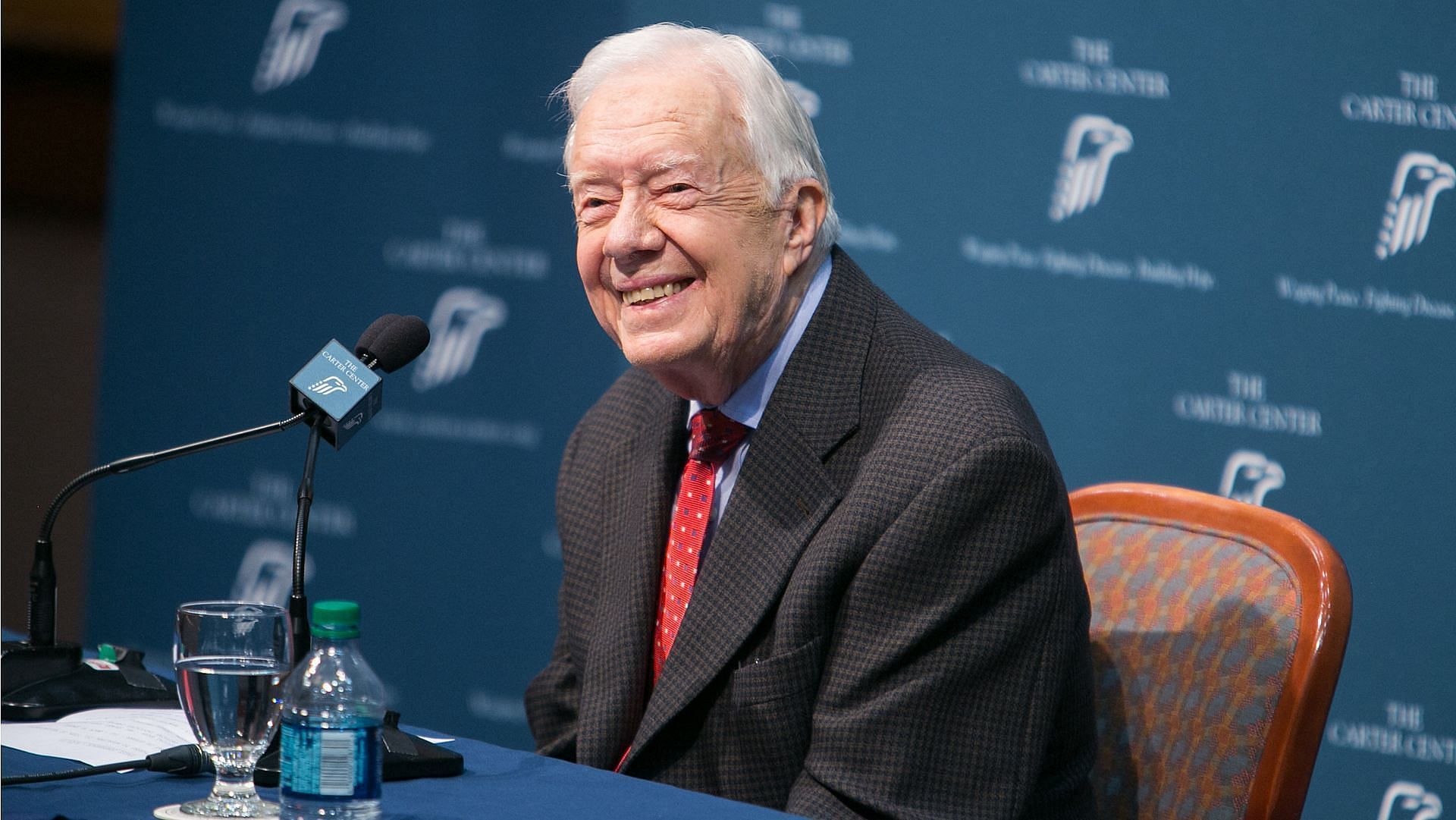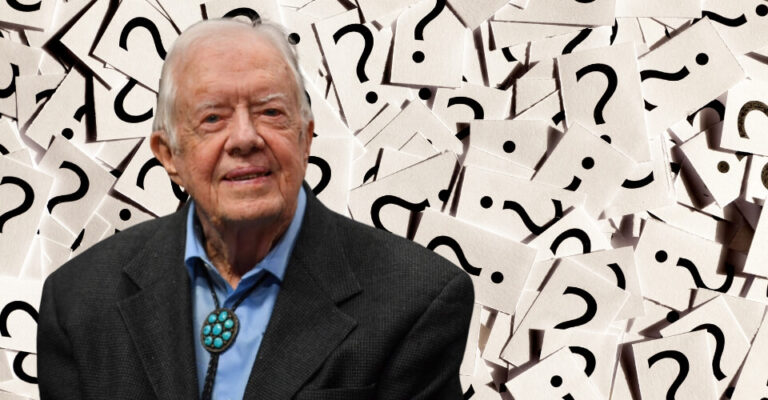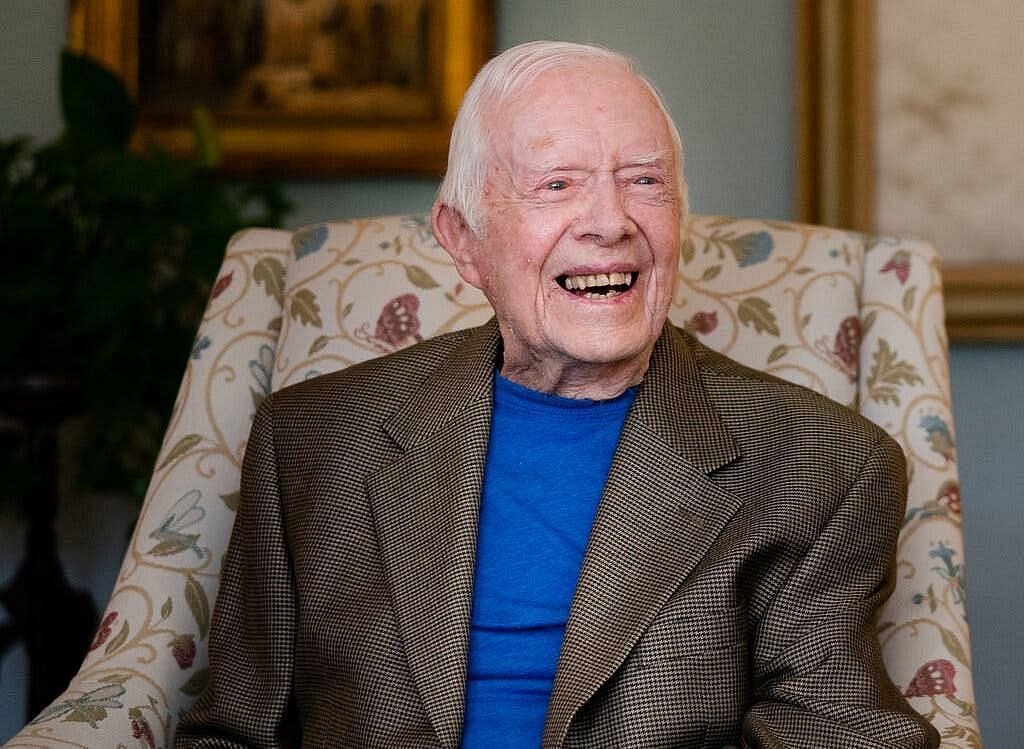Jimmy Carter’s Presidency

Did jimmy carter pass – Jimmy Carter, the 39th President of the United States, served from 1977 to 1981. His presidency was marked by both significant achievements and challenges, leaving a lasting impact on the nation.
Former President Jimmy Carter’s legacy includes his efforts to address social issues. He established the Social Security Administration , which provides financial assistance to retired and disabled individuals. Carter’s commitment to social justice has had a lasting impact on American society.
One of Carter’s major accomplishments was the Camp David Accords, which brokered a peace treaty between Israel and Egypt. This historic agreement was a major breakthrough in the Middle East peace process and remains a cornerstone of regional stability.
Jimmy Carter’s presidency marked a period of environmental progress, including the establishment of the Rapidan Dam , a crucial hydroelectric project that provided clean energy and flood control. Despite facing challenges during his presidency, Carter’s commitment to environmental conservation remains a testament to his legacy.
Domestic Policies
Domestically, Carter faced significant economic challenges, including high inflation and unemployment. He implemented a number of policies aimed at addressing these issues, such as the National Energy Act and the Humphrey-Hawkins Full Employment Act. However, these measures had limited success in curbing the economic downturn.
The former president’s legacy continues to be debated, with some arguing that his accomplishments were overshadowed by his failures. Quincy Wilson , a prominent criminologist, was one of Carter’s most outspoken critics, arguing that his policies were ineffective and counterproductive.
Despite these criticisms, Carter’s legacy remains complex and multifaceted, with his supporters highlighting his achievements in areas such as human rights and environmental protection.
Foreign Policy
In foreign policy, Carter pursued a more conciliatory approach than his predecessors. He established diplomatic relations with China, withdrew US troops from South Korea, and signed the SALT II nuclear arms limitation treaty with the Soviet Union. However, his efforts to promote human rights around the world were often met with resistance from authoritarian regimes.
Energy Crisis
The energy crisis of the 1970s posed a major challenge for Carter. He implemented a number of measures to reduce US dependence on foreign oil, including the creation of the Department of Energy and the establishment of the Strategic Petroleum Reserve. However, these measures were not fully effective in addressing the crisis.
Iran Hostage Crisis, Did jimmy carter pass
Carter’s presidency was also marked by the Iran hostage crisis, in which 52 American diplomats and citizens were held captive in Iran for 444 days. The crisis had a profound impact on Carter’s popularity and contributed to his defeat in the 1980 presidential election.
Did Jimmy Carter pass away? It is a question that has been circulating lately, but the answer is no. The former US President is still alive and well at the age of 98. He recently endorsed Jamaal Bowman , a progressive Democrat running for Congress in New York’s 16th district.
Bowman’s campaign has been gaining momentum, and Carter’s endorsement is a major boost. Carter’s endorsement of Bowman is a sign that he is still engaged in politics and cares about the future of the country.
Legacy
Despite the challenges he faced, Carter left a lasting legacy as a humanitarian and advocate for peace. He established the Carter Center, which works to promote democracy, human rights, and health around the world. Carter’s presidency remains a complex and controversial period in American history, but his commitment to global cooperation and his efforts to address social and economic challenges have had a significant impact on the nation and the world.
Jimmy Carter’s Post-Presidency

After leaving office in 1981, Jimmy Carter embarked on a remarkable post-presidential career marked by tireless humanitarian work, conflict resolution efforts, and global health initiatives. His dedication to these causes has significantly shaped his legacy and cemented his status as a respected elder statesman.
Humanitarian Work and Conflict Resolution
Carter established the Carter Center in 1982, a non-profit organization dedicated to promoting democracy, human rights, and peace. Through the Carter Center, he has mediated conflicts in countries such as Haiti, Sudan, and North Korea, often successfully negotiating ceasefires and peace agreements. Carter has also been a vocal advocate for human rights, working to expose human rights violations and promote democratic reforms worldwide.
Global Health Initiatives
Carter has been a tireless advocate for global health, particularly in the fight against Guinea worm disease and river blindness. He has worked closely with the World Health Organization and other international organizations to provide medical treatment and support to affected communities. Carter’s efforts have significantly contributed to the eradication of Guinea worm disease and the control of river blindness, improving the lives of millions of people in developing countries.
Impact on Legacy
Carter’s post-presidential work has had a profound impact on his legacy. His unwavering commitment to humanitarian causes has earned him widespread respect and admiration, both domestically and internationally. He has been awarded the Nobel Peace Prize for his efforts to resolve conflicts and promote democracy, and his Carter Center continues to be a major force for good in the world. Carter’s post-presidential career has not only extended his influence but has also solidified his reputation as a man of integrity, compassion, and unwavering determination.
Jimmy Carter’s Impact on Domestic and Foreign Policy: Did Jimmy Carter Pass

Jimmy Carter’s presidency marked a significant shift in American politics, both domestically and internationally. His policies were often ambitious and far-reaching, and they had a lasting impact on the country. Carter’s domestic policies focused on addressing social and economic issues, including energy, healthcare, and human rights. He also pursued a more active role in foreign policy, particularly in the Middle East.
Domestic Policies
Carter’s domestic policies were often ambitious and far-reaching, and they had a lasting impact on the country. He focused on addressing social and economic issues, including energy, healthcare, and human rights.
- Energy: Carter was a strong advocate for energy conservation and the development of alternative energy sources. He signed into law the National Energy Act, which provided tax incentives for energy conservation and the development of renewable energy sources.
- Healthcare: Carter proposed a comprehensive healthcare plan that would have provided health insurance to all Americans. However, the plan was defeated in Congress.
- Human Rights: Carter made human rights a central focus of his foreign policy. He appointed Andrew Young, a civil rights activist, as the U.S. ambassador to the United Nations. Carter also signed the Helsinki Accords, which committed the United States to respecting human rights in its dealings with other countries.
Foreign Policy
Carter pursued a more active role in foreign policy, particularly in the Middle East. He helped to negotiate the Camp David Accords, which led to a peace treaty between Israel and Egypt. Carter also signed the Panama Canal Treaty, which transferred control of the canal from the United States to Panama.
- Camp David Accords: Carter played a key role in negotiating the Camp David Accords, which led to a peace treaty between Israel and Egypt. The accords were a major diplomatic breakthrough, and they helped to improve relations between the two countries.
- Panama Canal Treaty: Carter signed the Panama Canal Treaty, which transferred control of the canal from the United States to Panama. The treaty was a major concession to Panama, and it helped to improve relations between the two countries.
Carter’s presidency was a time of significant change in both domestic and foreign policy. His policies were often ambitious and far-reaching, and they had a lasting impact on the country.
Did Jimmy Carter pass? The question lingered in the air, a reminder of the mortality of even the most celebrated figures. As I pondered this, my mind drifted to Dave Grohl , the Foo Fighters frontman whose relentless energy and infectious enthusiasm had inspired countless fans.
And yet, even Grohl, with his seemingly boundless vitality, was subject to the same inevitable fate. The thought of Carter’s passing served as a poignant reminder of the fragility of life, a reminder to cherish every moment and to celebrate the lives of those who had touched our own.